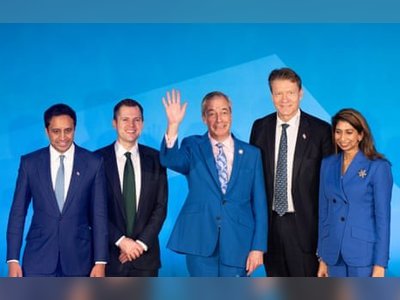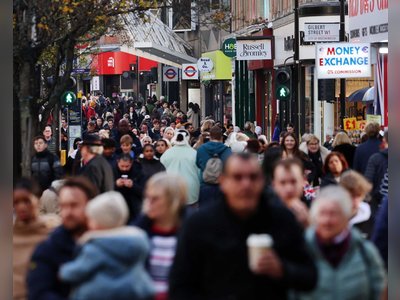Ivory Coast to Evict French Troops Amid Surging Calls for African Sovereignty
President Ouattara’s bold move marks a pivotal shift as France’s military footprint contracts in West Africa amid rising anti-colonial sentiment.
In a decisive sweep, Ivory Coast has announced the planned withdrawal of French troops, signaling a further contraction of France's longstanding military influence in West Africa.
This strategic recalibration, unveiled during President Alassane Ouattara's end-of-year address, underscores a newfound confidence in the modernized capabilities of Ivory Coast's own armed forces and reflects a broader, regional trend towards reclaiming sovereignty from foreign presence.
As former colonial rulers, France maintained a military foothold across West Africa until recently—military advances that have waned significantly in response to recent political upheavals and growing anti-French sentiment within the region.
With some 600 French soldiers still deployed in Ivory Coast, the largest contingent remaining in West Africa, this withdrawal marks a paradigmatic shift in the West African geopolitical landscape.
Compounding France's strategic withdrawals, Senegal also confirmed it would close its military bases to French forces by the end of 2025, moving in concert with analogous region-wide trends after recent developments in Mali, Burkina Faso, and Niger—all nations where France has significantly reduced its military presence following local military coups.
Senegalese President Bassirou Dioumaye Faye, elected on a platform of national sovereignty and reduced external dependency, heralded this decision as part of a broader reevaluation of Senegal's defense and security policy.
'I have instructed the minister for the armed forces to propose a new doctrine for cooperation in defense and security, involving, among other consequences, the end of all foreign military presences in Senegal from 2025,' he declared.
One exception amidst the shifting tides remains Gabon, where France maintains a minimal military presence.
Yet overall, France's strategic retreat from its historical sphere of influence reflects deeper fissures within the Franco-African relationship and a newfound assertiveness emergent amongst West African leaders in reclaiming autonomous control over national defense.
This recalibrated geopolitical strategy resonates with historical undercurrents.
Post-independence, Ivory Coast reputedly symbolized socio-economic stability within West Africa, emerging as a regional beacon with religious and ethnic cohesion coupled with a flourishing economy.
Yet an armed rebellion in 2002 unsettled this equilibrium, subjecting the nation to strife that delayed reconciliation and peace.
Today, buoyed by its status as the world's largest cocoa exporter, Ivory Coast is poised at a threshold of economic and political renaissance, suggesting an aspirational vision for self-reliance and regional leadership—a vision mirrored across a West Africa intent on curating its future away from the shadows of colonial legacy.
This strategic recalibration, unveiled during President Alassane Ouattara's end-of-year address, underscores a newfound confidence in the modernized capabilities of Ivory Coast's own armed forces and reflects a broader, regional trend towards reclaiming sovereignty from foreign presence.
As former colonial rulers, France maintained a military foothold across West Africa until recently—military advances that have waned significantly in response to recent political upheavals and growing anti-French sentiment within the region.
With some 600 French soldiers still deployed in Ivory Coast, the largest contingent remaining in West Africa, this withdrawal marks a paradigmatic shift in the West African geopolitical landscape.
Compounding France's strategic withdrawals, Senegal also confirmed it would close its military bases to French forces by the end of 2025, moving in concert with analogous region-wide trends after recent developments in Mali, Burkina Faso, and Niger—all nations where France has significantly reduced its military presence following local military coups.
Senegalese President Bassirou Dioumaye Faye, elected on a platform of national sovereignty and reduced external dependency, heralded this decision as part of a broader reevaluation of Senegal's defense and security policy.
'I have instructed the minister for the armed forces to propose a new doctrine for cooperation in defense and security, involving, among other consequences, the end of all foreign military presences in Senegal from 2025,' he declared.
One exception amidst the shifting tides remains Gabon, where France maintains a minimal military presence.
Yet overall, France's strategic retreat from its historical sphere of influence reflects deeper fissures within the Franco-African relationship and a newfound assertiveness emergent amongst West African leaders in reclaiming autonomous control over national defense.
This recalibrated geopolitical strategy resonates with historical undercurrents.
Post-independence, Ivory Coast reputedly symbolized socio-economic stability within West Africa, emerging as a regional beacon with religious and ethnic cohesion coupled with a flourishing economy.
Yet an armed rebellion in 2002 unsettled this equilibrium, subjecting the nation to strife that delayed reconciliation and peace.
Today, buoyed by its status as the world's largest cocoa exporter, Ivory Coast is poised at a threshold of economic and political renaissance, suggesting an aspirational vision for self-reliance and regional leadership—a vision mirrored across a West Africa intent on curating its future away from the shadows of colonial legacy.










